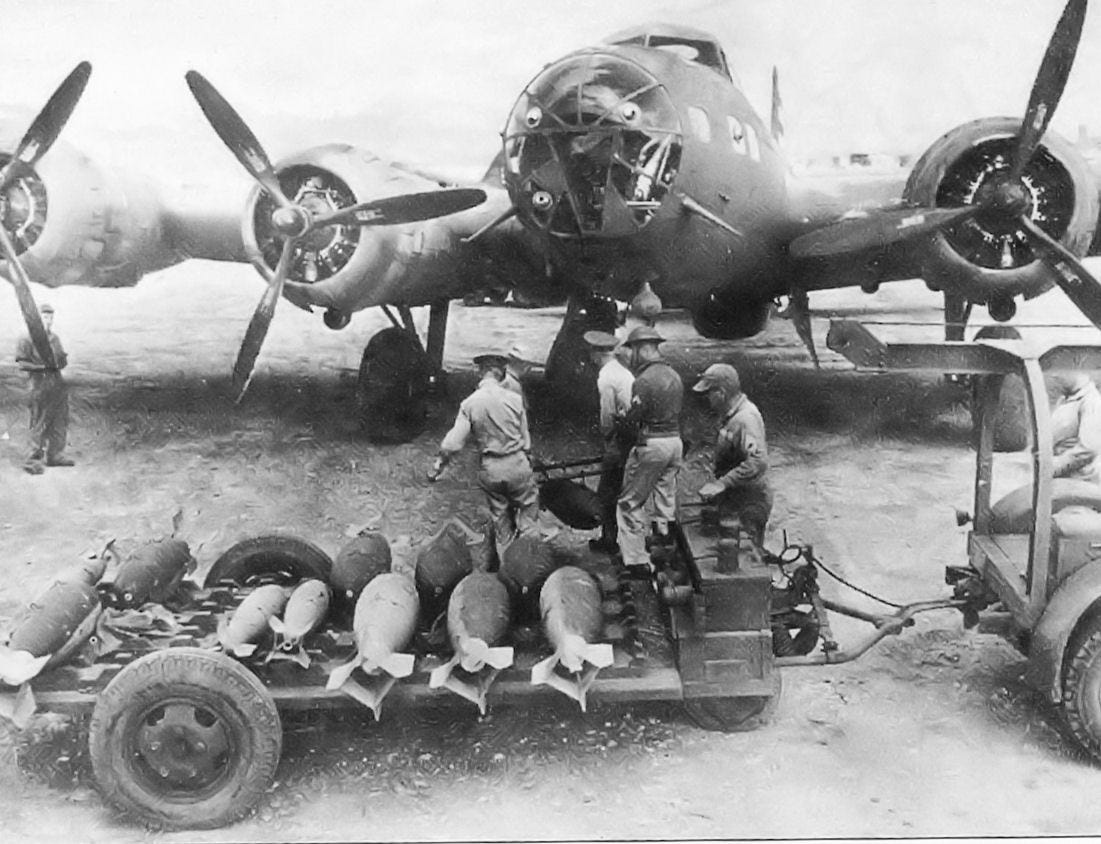Today in history: Bukidnon to Australia by bomber, 1942
A general recounts their flight into exile by B17 bomber from Del Monte to Darwin

On March 26, 1942, the Philippine government embarked on its journey into exile. Gen. Basilio J. Valdes recounts the fateful flight, from Del Monte to Darwin:
Attended and served Mass. Returned to Del Monte. 12:30 p.m. went with Vice-President Osmeña to Mr Crawford’s evacuation house for lunch. Returned to Del Monte. Packed my valise for the airplane trip.
The planes arrived at 8:45 p.m. We could hear the roar of the engines from our house at Del Monte. At 10 p.m. we were told to get into automobiles already assigned to each person and member of the President’s party. Those that were to ride in Plane N-1 rode in cars N-1 and N-2. We were the President and his family, Dr. Trepp, Colonel Nieto, Chaplain Ortiz and myself. We arrived at the airfield at 10:40 p.m.; we were assigned to various places thus; Colonel Nieto & Chaplain Ortiz in the gunners cockpit in front. Dr. Trepp in the rear and the President, his family and myself in the radio operators compartment in the center of the plane. There was absolutely no comfort amenities, but we were willing to sacrifice every thing for safety. We took off exactly at 11 p.m. The moon was bright. I heard the roar of the four engines, then I felt a few bumps and a few seconds later I realized we were in the air. The first part of the journey was pleasant although I felt cold. I was sitting on a box in the bomb compartment and there was a cold draft coming from a small opening in the floor of the compartment. A few minutes later the pilot Lieutenant Falkner came and asked me not to smoke as I was situated next to the two big tanks of gasoline. I assured him that there was no danger and I was not a smoker. I could notice we were climbing as it became colder and colder. My feet were almost frozen. Suddenly I felt a hand in the dark grabbing my left leg. I got up; it was the President. “Give me oxygen”, he said “I cannot breathe well”. I applied the oxygen apparatus to his nose. After a few minutes he said: “this does not function; I can not smell the oxygen.” I informed him that oxygen had no odor and consequently could not be smelled. The he said: “Tell the pilot not to climb too high as I cannot stand it.” I took his pulse; it was a little fast due to his fear but otherwise was alright. I spoke to the pilot who assured me that he would not go higher than 9,000 feet and as soon as the enemy bases had been passed he would come down to 6,000 ft.
I watched the moon playing hide and seek behind the clouds. I took my rosary and prayed fervently. I thought of my family, of my little Nucay (Charito) of those dear to me. What would become of them if the trip should end in a disaster? As the moon disappeared behind the horizon, I looked at my watch; it was 2 a.m. Then I looked at the stars, but these also disappeared as we entered clouds. The clouds become darker and thicker. Then I could hear the rain pounding on the plane. The President asked for oxygen again. Then as we entered a heavy rain squall the plane was lifted and dropped a few times by the strong winds. I did not like it. The President was quite worried. He asked me if there was any danger. I assured him that there was none. Suddenly I noticed that the pilot banked the plane and the flying became smoother, later he told us that he had gone around the squall. At 6 a.m. the pilot came to inform us that we had passed already the Japanese bases and were practically safe. I saw the sky become clearer and then the sun came out. Then I saw land and a little later Port Darwin. We landed at Batchelor’s Field at 7:45 a.m.


